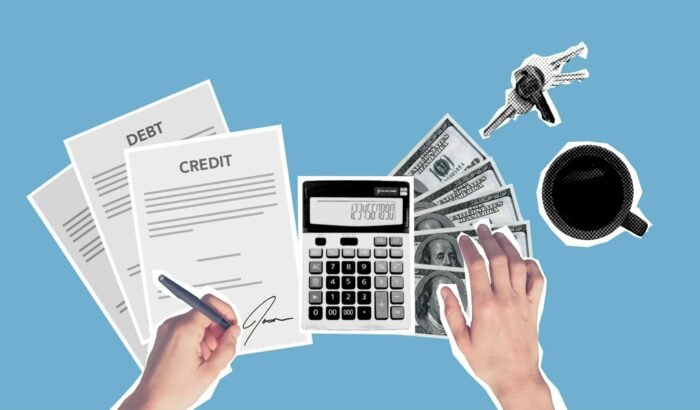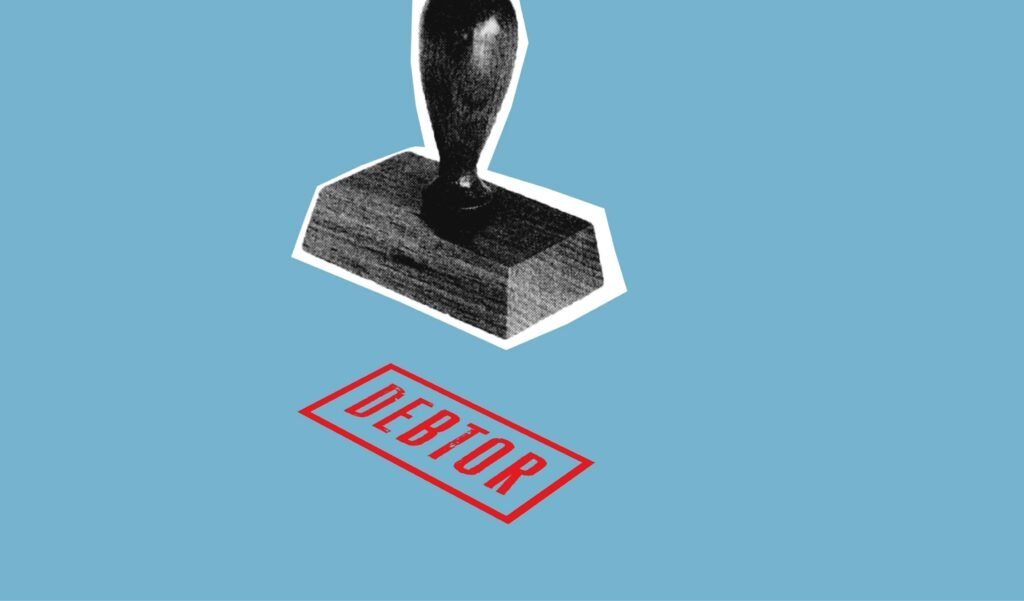Do you have a lot of debt and find it difficult to efficiently manage your finances? You might find the solution you’re looking for in debt consolidation. Debt consolidation can make repayment easier, potentially result in lower interest rates, and give you back control over your finances. However, debt consolidation has benefits and drawbacks just like any other financial choice. We will examine The pros and cons of debt consolidation for better financial management in this post so that you can make an educated decision for better money management.
Pros and Cons of Debt Consolidation for Better Financial Management
Key Takeaways:
- By consolidating several debts into a single payment, debt consolidation can streamline the repayment process and make it simpler to manage your finances.
- If you consolidate your debts, your interest rates may be lowered, saving you money on interest payments and enabling you to finish paying off your debt more quickly.
- Consolidating your debt gives you the chance to create a thorough debt management strategy and upgrade your money management practices.
- You may improve your credit score and lower the possibility of collection calls by paying your consolidated loan on time.
- However, there are disadvantages to debt consolidation, such as the chance of taking on additional debt, extended payback terms, and potential for higher overall interest rates.
- When assessing the financial advantages of debt consolidation, fees and charges must be carefully taken into account.
- • If you use assets, such home equity, to secure your consolidated loan, you run the risk of losing the collateral.
- Consolidating your debt may temporarily lower your credit score, but timely repayment can have a positive impact over the long term.
- Before choosing to consolidate your debt, it’s crucial to look at alternative options and take into account your unique financial situation.
- Consolidating debt is not a quick remedy; it calls for restraint, prudent spending, and dedication to long-term money management.
Always keep in mind that choosing to consolidate your debt is a personal decision, so it’s critical to weigh your options and, if necessary, seek advice from financial experts.
What is Debt Consolidation?
Let’s start by giving a quick outline of debt consolidation before getting into the advantages and disadvantages. Combining various debts into a single loan or credit account is known as debt consolidation. You consolidate your debts to pay off your loan in full each month rather than making several installments to several creditors. This streamlines the repayment procedure and may reduce your overall interest rate, ultimately saving you money.
The Pros of Debt Consolidation
1. Simplified Process for Repayment
Multiple debts can be complicated and hard to manage. By combining all of your debt payments into one, debt consolidation enables you to streamline your financial obligations. One monthly payment makes it simpler to manage your debt and make sure payments are made on time, lowering the possibility of missing payments or late fees.
2. Potentially Lower Interest Rates
The potential for a lower interest rate is one of the major advantages of debt consolidation. Consolidating high-interest credit card debt into a single loan with a lower interest rate can help you save money on interest payments if you have high-interest credit card debt. This may enable you to pay off your debt more quickly while also lowering the total amount you owe.
3. Debt Management and Budgeting
Consolidating your debts gives you the chance to review your financial status and create a detailed debt management strategy. You may make a budget using this method, keep track of your spending, and distribute your money more effectively. Long-term healthier financial habits may result from the encouragement of financial restraint.
4. Improved Credit Score
Consolidating your obligations has a number of advantages for your credit score. First off, you show sound financial judgment by paying your combined loan in a timely manner. Second, lowering your overall debt burden will result in a lower credit use ratio, which will raise your credit score. Finally, debt consolidation helps keep your creditworthiness intact by preventing late payments or defaults.
5. Reduction in Collection Calls
You can receive numerous calls from debt collectors if you’re having a hard time keeping up with your payments. This tension can be reduced or eliminated by consolidating your obligations, making timely payments, and avoiding collections calls. This can provide you comfort and free up your time so you can work on improving your financial status.
6. Potential for Debt Payoff within a Fixed Timeline
Setting a fixed payback period for your merged loan is a common step in debt consolidation. This indicates that you have a certain timeframe within which you might anticipate being debt-free. You can attain financial freedom sooner by keeping disciplined and concentrated on repaying your debt when you have a clear target date to work toward.
The Cons of Debt Consolidation
1. The Enticement to Take on New Debt
Getting your debts consolidated might bring you relief and a sense of accomplishment. Addressing the underlying issues that initially caused your debt to accumulate is vital, though. Without addressing these underlying problems, you run the risk of reverting to previous spending patterns and racking up additional debt on top of your consolidation loan. To avoid this trap, it’s crucial to practice discipline and create sound financial practices.
2. Prolonged Period of Repayment
Consolidating your debts can streamline your repayment procedure, but it also has the potential to make your debt last longer. You can have a longer repayment period if you combine several loans to pay off your debts. While this may lower your monthly payment amount, it also lengthens the time you are in debt, which may result in you paying more interest overall.
3. Possibility of Greater Interest
Although there is a chance that lower interest rates will result from debt consolidation, this is not always the case. It’s possible that you won’t get approved for a loan or credit account with a lower interest rate depending on your credit rating and financial position. The interest rate on your aggregated loan could, in certain circumstances, be higher than the average interest rate on your individual debts. Before making a choice, it is crucial to thoroughly weigh the interest rates and periods provided by various consolidation choices.
4. Charges and Fees
Fees and expenditures, such as origination fees, balance transfer fees, or closing costs, are frequently associated with debt consolidation. These extra costs may accumulate and raise the ultimate cost of debt consolidation. When assessing the financial advantages of debt consolidation, it’s critical to take these fees and costs into account. To decide whether consolidation is the best option for you, weigh the total costs against the potential savings.
5. Risk of Losing Collateral
Some debt relief strategies put your assets at risk, such as arranging a consolidation loan with security (like home equity). Depending on the type of collateral involved, you can risk foreclosure, repossession, or other repercussions if you don’t make payments on the aggregated loan. Before deciding on a consolidation strategy that calls for collateral, carefully weigh the risks involved and be sure you can comfortably meet the repayment requirements.
6. Possibility of Effect on Credit Score
Even though debt consolidation can raise your credit score, it can also have adverse impacts, at least temporarily. A hard inquiry is made on your credit report when you apply for a new loan or credit account to consolidate debt, which might temporarily reduce your credit score. Additionally, the average age of your credit history—another element that affects your credit score—can be impacted by canceling old accounts as part of the consolidation procedure. However, over time, these detrimental effects can be reduced with cautious repayment.
FAQs (Frequently Asked Questions)
Is debt consolidation the right option for everyone?
Not everybody is a good candidate for debt consolidation. According to each person’s financial situation and ambitions. It’s crucial to thoroughly assess your circumstances and take into account things like interest rates, costs, repayment terms, and your capacity to make regular payments.
Will debt consolidation eliminate my debt completely?
Your debt is not completely eliminated via debt consolidation. It consolidates several loans into one, making payments easier. Your obligation to pay off the combined loan or credit account remains.
Can I consolidate different types of debt, such as credit cards, student loans, and medical bills?
Yes, debt consolidation is an option for a variety of debts, including credit card, personal, student, and other debts. Your creditworthiness and the terms provided by lenders or financial institutions may affect the specific possibilities you have.
Will debt consolidation hurt my credit score?
Debt consolidation itself does not directly harm your credit score. However, certain actions associated with consolidation, such as applying for a new loan or closing old accounts, may have temporary impacts on your credit score. With responsible repayment and managing your credit effectively, debt consolidation can have a positive long-term effect on your credit score.
Should I work with a debt consolidation company or do it myself?
Depending on your comfort level and financial condition, you can choose to work with a debt consolidation company or do the procedure yourself. Companies that consolidate debt have experience dealing with creditors and managing the consolidation process. However, if you decide to seek expert assistance, it’s crucial to do your research and pick a reliable business.
Are there alternatives to debt consolidation?
Yes, there are other ways to control and lower debt. These include balance transfers, debt settlement, debt management plans, and even enlisting the aid of a credit counseling organization. Before choosing the best course of action for your financial condition, it is vital to investigate and comprehend the possibilities since each has its own benefits and factors to take into account.
Can I continue using my credit cards after consolidating my debt?
It’s necessary to apply prudence and self-control when using credit cards after debt consolidation, even though it’s not always forbidden. Making wise financial decisions, sticking to a budget, and putting your attention toward paying off your combined loan are all recommended ways to prevent getting sucked back into a debt cycle.
How long does debt consolidation take?
Depending on the type of debt, the method of consolidation selected, and unique circumstances, the length of the debt consolidation procedure can vary. Starting to make payments on your merged debt and completing the consolidation procedure could take a few weeks to several months.
Conclusion
For those who want easier debt payments and improved money management, debt consolidation may be a good solution. You can simplify your payments, possibly cut interest rates, and establish a clear road to debt freedom by combining several debts into one. However, it’s important to thoroughly weigh the benefits and drawbacks before determining if debt consolidation is the best option for you. Think about things like interest rates, fees, repayment schedules, and your capacity to adhere to good financial practices.
Remember that there is no one-size-fits-all approach to debt consolidation; instead, you should select a strategy that matches your financial objectives and capacity. Debt consolidation can be an effective tool to recover control over your finances and work toward a more secure financial future if used wisely and with smart money management.












